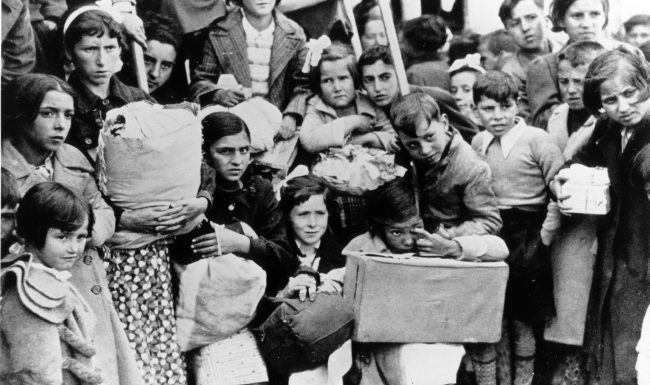Part of the Edinburgh Spanish Film Festival
The Guernica Children is a powerful and informative documentary that sheds light on one of the more overlooked refugee stories in Britain. It begins by providing an effective summary of the beginning of the Spanish Civil War and how it led to the northern Basque region, which contained the civilian town of Guernica, becoming isolated from the rest of Spain as a result of being surrounded on all sides by the Nationalist forces of General Franco.
The documentary then goes on to recount the Nationalist bombing of Guernica and the subsequent evacuation of the children by ship. We hear first-hand contemporary accounts from the surviving children themselves, describing the pain they experienced from being separated from their parents, the harsh conditions of their journey to Britain (which included their ship being threatened by Nationalist forces) and of their mixed experiences of life in Britain.
This last point also enables the documentary to further examine the role, or lack thereof, that the British government played in housing the children. The documentary doesn’t shy away from revealing the government’s initial reluctance in allowing the children to enter Britain, both due to the number of children that would be entering the country and the fear that any British involvement regarding Civil War refugees would be seen as intervening in the conflict.
The government’s lack of aid for the children in Britain is also detailed, with the majority of support coming from local voluntary organisations and communities. This, along with the mention of hyperbolic press reports stereotyping the refugees as communists and criminals, feels all too real in this current political climate, where Syrian refugees face similar attempts to paint them as threats to the societies of their host countries.
However, the children are shown to successfully integrate into British society, with the film concluding with images of them happily settled in the country – one refugee mentions that people can no longer tell if he is Spanish or Welsh! This conclusion further underlines the continuing relevance and importance of films like The Guernica Children today, to show that refugees – whether from 1930s Spain or present day Syria – are human beings whose inclusion into British society is not necessarily a negative.
